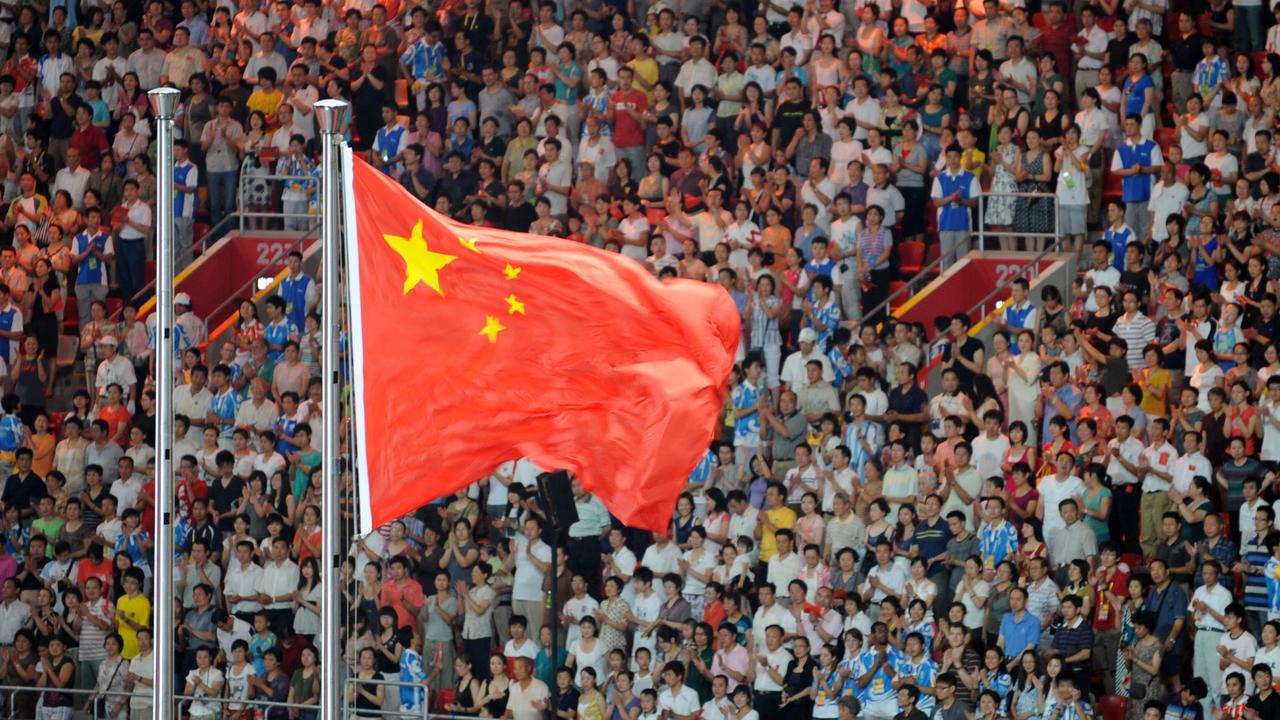


The World Anti-Doping Agency (WADA) on Monday rejected accusations of a cover-up during their investigation into Chinese swimmers testing positive for a prescription heart drug and said they would take “whatever action necessary” in response to the allegations.
Reports at the weekend that 23 Chinese swimmers tested positive for trimetazidine (TMZ) — which can enhance performance — ahead of the Tokyo Olympics in 2021 led to a strong attack from the head of the United States Anti-Doping Agency (USADA), Travis Tygart.
Get on board Kayo and watch every game of every round of the NRL + AFL Seasons live and ad break free during play. New to Kayo? Start Your Free Trial Today >
Tygart said that WADA and the Chinese anti-doping body had “secretly, until now, swept these positives under the carpet” and called the situation a “potential cover-up”.
The swimmers were allowed to compete after world governing bodies accepted China’s findings that they had ingested it unwittingly from food during a meet in late 2020 and early 2021.
Several went on to win medals, including gold, and many are in line to compete at the Paris Olympics this summer.
“What I can say right now is that at every stage, WADA followed the whole due process and diligently investigated every line of inquiry in this matter,” WADA president Witold Banka told an online news conference.
“If we had to do it over again now, we would do exactly the same thing.”
Banka said “no credible evidence of wrongdoing was provided by any source who came forward on this file, so the threshold for WADA intelligence and investigations to open an investigation was not met.”
One of the options that WADA had would have been to take the case to the Court of Arbitration for Sport (CAS) and challenge the Chinese anti-doping body (CHINADA) decision.
EXPLAINED: Why China could have Olympic gold medal stripped after bombshell report
WADA has made such moves in the past but Banka said that was not an option in this case.
He said the body had “no credible way to disprove the contamination theory that was accepted by CHINADA, a position that was also accepted by World Aquatics.
“In short, if we had taken such an appeal and challenged the contamination explanation, we would certainly have lost,” he said.
WADA’s general counsel, Ross Wenzel, said such an appeal’s chances of success at CAS would have been “close to zero”.
Banka questioned Tygart’s motives for his criticism of WADA.
“I have to say that from our perspective, look(ing) at the comments on social media and the official statements from USADA, it is obvious that most of the comments are politically motivated and without any evidence that there was something, on our side, wrong,” he said.
The WADA president said there was no question of his body being overly lenient on Chinese athletes.
“It is worth pointing out that at the same time as our experts were reviewing this case in 2021, we are also vigorously pursuing justice in the case of another swimmer from China, Sun Yang,” he said.
Three-time Olympic champion Sun is about to finish a second doping ban. His first, in 2014, was for taking TMZ.
Wenzel said WADA was going through comments made by USADA and others in media reports and a documentary by German broadcaster ARD with a “fine tooth comb” and that the body would “take whatever action is necessary”.
Beijing on Monday called reports about the case “fake news”.
“The relevant reports are fake news and not factual,” said foreign ministry spokesman Wang Wenbin.
“I believe you will also have noted that the World Anti-Doping Agency has put out a very clear response,” Wang said.
Wang said China’s anti-doping centre conducted an “in-depth and detailed” probe into the incident, which found the athletes had ingested contaminated drugs “without their knowledge”.
“The Chinese swimmers involved were neither at fault nor guilty of negligence, and their behaviour did not constitute a doping violation,” he told a regular press conference in Beijing.
“After an investigation, WADA affirmed the findings of the China anti-doping centre.
Wang said the Chinese government “consistently upholds a resolutely zero-tolerance position when it comes to doping,” adding China upholds “fair competition” in sport.
Chinese swimming has a chequered doping history. Seven Chinese swimmers tested positive for steroids at the 1994 Asian Games in Hiroshima.
In 1998, swimmer Yuan Yuan was banned after Australian customs officers discovered a large stash of human growth hormone in her bags at the world championships in Perth.